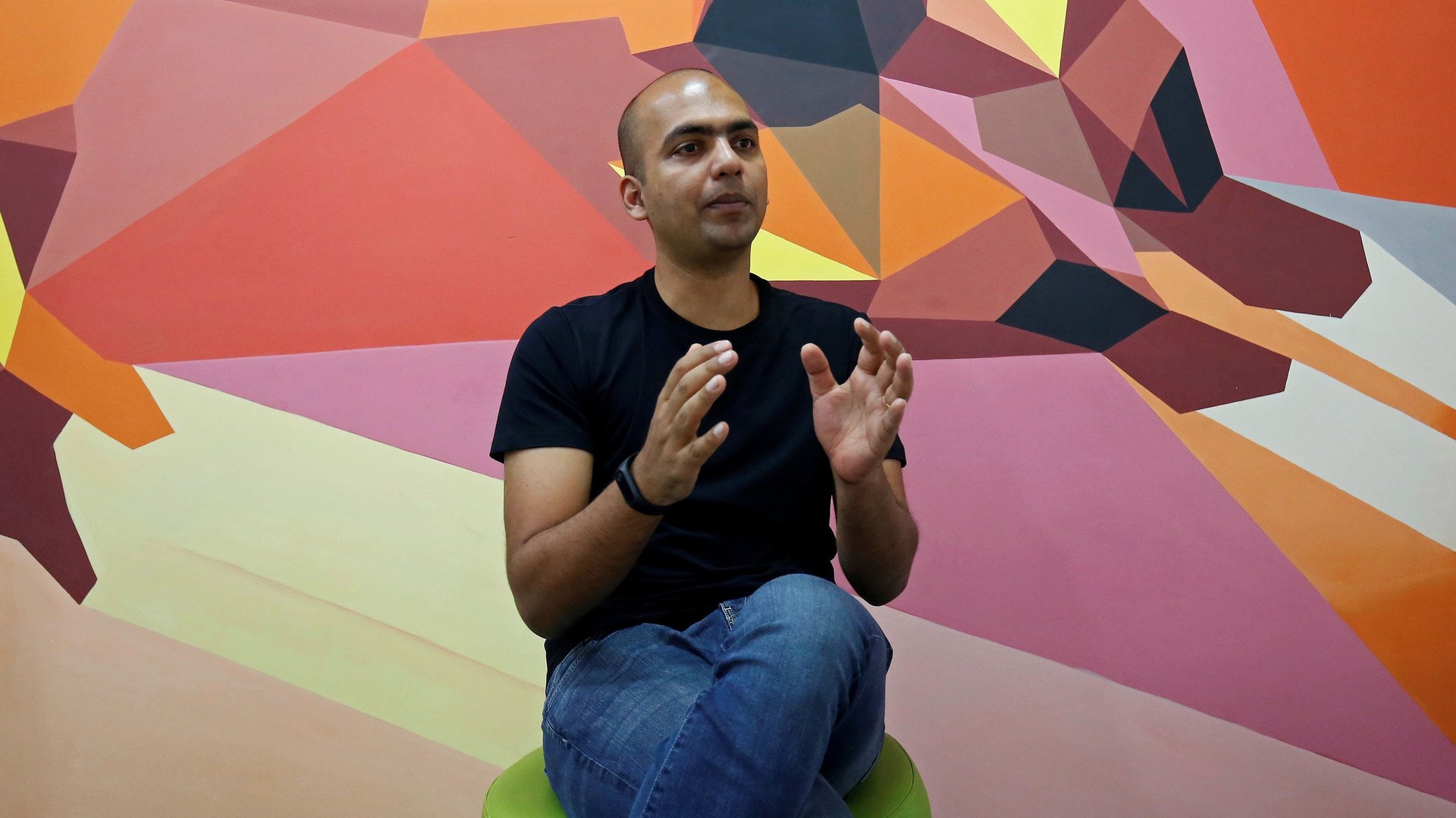An Indian exec is set to make a fortune when Xiaomi goes public
Chinese phone-maker Xiaomi’s initial public offering (IPO) is likely to make at least one Indian a lot wealthier: Manu Kumar Jain, vice president and managing director of the company’s India arm.


Chinese phone-maker Xiaomi’s initial public offering (IPO) is likely to make at least one Indian a lot wealthier: Manu Kumar Jain, vice president and managing director of the company’s India arm.
Xiaomi has announced plans for a $10 billion stock market debut in Hong Kong, which could value the company at around $100 billion. Jain, who is the only Indian on Xiaomi’s board, holds 2.3 million shares allotted under the employee stock ownership plan (ESOP), making him the third-highest ESOP holder in the company.
Jain, who joined Xiaomi in October 2014, is the man behind the brand’s overwhelming success in India, a region that helped propel the company’s recent growth. In January 2017, Jain took the additional role of Xiaomi’s vice president after Hugo Barra left the company to join Facebook.
Slam DINK
The 37-year-old mechanical engineer from the Indian Institute of Technology Delhi, and alumnus of the Indian Institute of Management Calcutta, has had an unusual career.
In 2011, he gave up a four-year stint at McKinsey & Company to co-create the DINK Couple comics, a cartoon series that started out as stories of a “Double Income No Kids” couple and evolved into “Double Income Naughty Kid” after Jain and his wife had a baby.
The same year, Jain co-founded online fashion retail portal Jabong in the pursuit of his passion for entrepreneurship. In an interview in 2016, he said that he always wanted to be an entrepreneur and even his job at McKinsey was a part of the plan.
“Most people take up investment banking jobs over consultancy roles because the former pays a lot more. I always wanted to be associated with things that are entrepreneurial in nature and hence chose to work with a consultancy firm,” he said.
From February 2012 to January 2014, he served as managing director of Jabong, which had by then become one of the sector leaders. (Jabong is now owned by India’s largest e-commerce firm, Flipkart, which bought it in 2016 for $70 million.)
Jain @ Xiaomi
Jain landed the job at Xiaomi when his former McKinsey colleague Navin Tewari, the co-founder and CEO of InMobi, put him in touch with the company’s co-founder Bin Lin. The appointment was finalised during just one short trip to China.
And his task was cut out: Jain had to build the company in India from scratch.
“I was the only employee for the first three months and for first two months, I did not even have an office. My first office was six by four feet and I used to open the office myself,” Jain said in an interview with Business World earlier this year. “It had happened many times that I am serving tea to the investors in the meeting and I used to talk about deals worth hundred crores. The investors used to look at me like I am talking about a Ponzi scheme. They used to ask me that how big is your team and I told them I am the only person.”
From there, Jain has brought Xiaomi a long way.
Under his leadership, the company has captured 31% of India’s smartphone market in just two years. He has been instrumental in crafting a successful strategy, including launching affordable products, staging online-only debuts while ensuring robust offline retail channels, and building a strong supply chain.
“India represents our largest market outside of mainland China and is an example of the success we achieved in international expansion,” Xiaomi said in its IPO document (pdf). The brand knocked down long-time leaderboard-topper Samsung to become number one in 50 major Indian cities.
Xiaomi has also expanded its product line in the country. It started selling TVs in India earlier this year.
The company has established manufacturing capabilities in India and makes over 75% of the handsets it sells in the country in two of its plants, run in partnership with Taiwanese electronics manufacturer Foxconn, in Andhra Pradesh. “There might also come a day when we launch products first in India and also design and develop products exclusively for India,” Jain told Business Standard in March 2018. “Eventually we want to manufacture everything in India.”